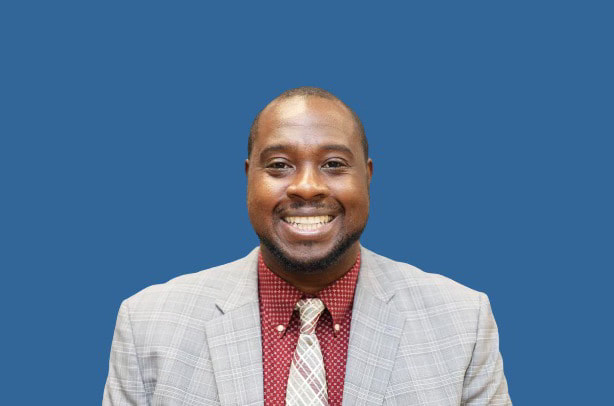Vernon K. Walker2023 Candidate for Cambridge City Council
|
1. Experience with Cambridge nonprofits. Do you have work or volunteer experience with Cambridge nonprofits?
Yes. For over 4 years, I was the program manager/program director of a nonprofit program based out of Cambridge called the Communities Responding to Extreme Weather (CREW). CREW is a program under the nonprofit organization called the Better Future Project, which has been in Cambridge since 2014. I am also on the advisory board of the Charles River Watershed Association.
2. Valuing nonprofit expertise. Cambridge nonprofits deliver programs and services across a wide range of missions, from early education and youth development, to affordable housing production and management, arts and culture exposure and education, food security, environmental preservation, civic engagement (or community involvement), and much more. As a result, nonprofit leaders and staff are often well positioned to advise the City on program policies related to their clients and consumers. Will you use your position on the City Council to ensure that the City incorporates the voice and expertise of nonprofit leaders into planning around current City priorities?
Yes. I believe there are subject experts that work at various nonprofits in the city. I think the city would benefit from including these voices into shaping city priorities over the next several years. I will use my position as on City Council to ensure that nonprofit leader voices are included in the discussion related to city priorities. I am current a nonprofit leader as I am the Climate Justice Program Director at Clean Water Action.
3. Limiting application of Anti-Aid Amendment. With the exception of contracts for services, the Anti-Aid Amendment of the MA Constitution prohibits municipalities from directly distributing funds raised through taxation to nonprofits. While the City provides financial support to nonprofits through contracting, this approach increased administrative burdens, can cause cash-flow issues due to payment delays, and limits creativity in developing new funding opportunities. It also can create an incentive for the City to start new initiatives rather than invest in programs already well established in the community. Will you use your position on the City Council to limit the application of the Anti-Aid Amendment to tax generated revenue only, in order to maximize the resources available to Cambridge nonprofits?
Yes. I would be in support limiting the application of the Anti-Aid Amendment to only required revenue. In general I am supportive of the city supporting nonprofits in the city that are already doing great work. If we limit the Anti-Aid Amendment, this could open up the door for more nonprofits to thrive in our city and keep offering the services to the community. I think the City Council should look at every opportunity to be supportive of non-profits that are doing great work in the city. I also think the city could look at how to streamline the process of payments going to nonprofits in a timely manner so they can deliver the service to those who would benefit from it without delay.
4. Attending to nonprofit workforce challenges. According to CNC's December 2022 survey of Cambridge nonprofits, (70%) reported open positions and over a third (36%) said they lacked the funding to fill them, comprising their ability to meet service demands. Do you believe the City Council can play a role in helping nonprofits recruit and retain high quality staff?
Yes. City Council can pass policies that will create more affordable housing. Cambridge has a housing crisis and as a result, many people that work for nonprofits can't afford to live in the city. If we have policies pass like the affordable housing overlay 2.0, we can see more affordable housing created and more people in the nonprofit sector afford to live in Cambridge. The city could also partner with nonprofits to apply jointly for state and federal funding that make sense for both the city and nonprofit. With additional funding received from the grants, nonprofits can retain and recruit highly qualified staff.
5. ARPA investments in nonprofits. While Cambridge nonprofits are grateful for the City committing millions of ARPA dollars to local organizations, concerns have been raised both about the slow pace of releasing funds into the community and a lack of information being shared broadly regarding their progress. Will you use your position on the City Council to expedite this process and ensure there is greater transparency going forward?
Yes. When I was the Program Director of CREW, I was waiting for ARPA funding from the city to provide free cooling kits to the unhoused for the summer of 2023. I was given word via email in December 2022 from the city that funding was set aside for CREW to buy the cooling kits and do educational trainings to all the shelter staff across the city on how to recognize when a unhoused person is experiencing heat exhaustion and heat strokes. I emailed the Finance department throughout the winter and spring of 2023 to check in on the status of the funding and what CREW needed to do to receive the funding. It was not until June 2023 that I received a email from the city with all the necessary forms to complete in order for CREW to receive the funds. The city never did give CREW the funds during the summer of 2023 and we were unable to provide the cooling kits to the unhoused in Cambridge or train shelter staff. The purpose of the cooling kits was to help the unhoused stay cool during extremely hot days. I have heard from other nonprofit leaders that the the ARPA funding they were waiting on to come to their organization still has not come. As a City Councilor I would advocate that there is a timely process implemented to ensure that the city Finance department communicates more regularly with nonprofits partners about the status of funding that they are waiting on. I know it can be frustrating as a nonprofit leader to not receive funding that the city promised they would give.

